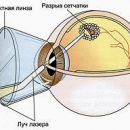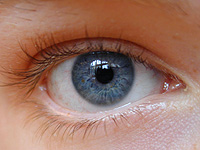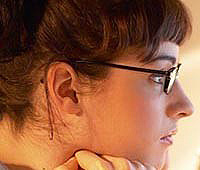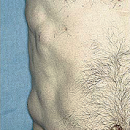Since glaucoma is a chronic progressive disease, leading to irreversible blindness, treatment is carried out constantly (life).
Content
What is glaucoma
Term «glaucoma» combines a large group of diseases, each of which has its own characteristics. The combination of these diseases in one group is due to the general symptom complex for all of them, which includes the following pathological manifestations: the violation of the hydrodynamics of the eye, the instability of intraocular pressure (WFD), an increase in the level of ophthalmus, atrophy of the optic nerve and the deterioration of visual functions.
T.E. This is chronic, progressive eye disease, characterized by a constant or periodic increase in BGD, a special form of atrophy of the optic nerve and characteristic changes in sight.
You should also know that there is a glaucoma with low (pseudonormal) pressure.
Why and who has glaucoma
The primary glaucoma is sick, mostly people of mature age, from 40 years old and older.
Currently, glaucoma is one of the main reasons for irreversible blindness in our country. The causes of the disease are different (and not clear): hereditary predisposition, anatomical features of the eye, involutional changes in the drainage system of the eye, inflammatory diseases of the eye, eye injury, long-term reception of drugs (corticosteroids), diabetes, metabolic disorders in the body and T.D.
How vision changes when glauer
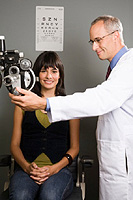 In the beginning of the disease, patients do not notice any subjective violations of view. And only in 15% of cases, periodic leaning of vision and iris round circles are noted when viewed and very rarely pain in the eye, in the abnormal arcs. Most often, a person cannot feel an increase in intraocular pressure. The disease is revealed randomly with a prophylactic examination by an ophthalmologist or when visual disorders are already occurring (changes in the field of view (defects, narrowing), a decrease in visual acuity), as a rule, in the developed stage of the disease.
In the beginning of the disease, patients do not notice any subjective violations of view. And only in 15% of cases, periodic leaning of vision and iris round circles are noted when viewed and very rarely pain in the eye, in the abnormal arcs. Most often, a person cannot feel an increase in intraocular pressure. The disease is revealed randomly with a prophylactic examination by an ophthalmologist or when visual disorders are already occurring (changes in the field of view (defects, narrowing), a decrease in visual acuity), as a rule, in the developed stage of the disease.
Glaucoma can flow and in the form of a sharp attack, which is accompanied by a strong headache, pain in the eye, nausea, total weakness, vision sharply decreases, pupil wide, red eyes.
In these cases, you will urgently turn to the doctor! If the attack is not liquidated during the day, urgent surgery will need. Glaucoma rapidly progressive disease and without timely detection and treatment of illness comes irreversible blindness.
What to do if you notice a worsening view
In all cases, impaired vision you should consult with an ophthalmologist.
Worsening Vision may be a symptom of many diseases and only a specialist can determine the cause and appoint rational treatment in your particular case. It should be known that in 40-60% of cases of glaucoma may be asymptomatic, therefore, with the aim of timely identification of the disease to all persons over 40 years of age, and the relatives of the patients with glaucoma are over 3 years old, it is necessary to examine an ophthalmologist 1 time per year.
What to do if you have revealed glaucoma
- Strictly perform the appointments of the doctor, visit it at least once every three months (more often);
- contraindicated reception of atropine, belladonna preparations;
- Contraindicated heavy physical work, work associated with heads of head and torso;
- In the summer, avoid direct solar irradiation, it is unacceptable to steam in the bath, wash your head very hot water;
- contraindicated alcohol, smoking, strong tea, coffee;
- undesirable wearing sunglasses;
- Diet: Milky and vegetable, It is advisable to avoid smoked, roasted meat, excess salt, liquid;
- TV look with additional lighting, no more than 2 hours in a row.
How to treat glaucoma
There are two main methods of glaucoma treatment: drug and surgical (including laser treatment). Each of these methods has its advantages and restrictions. Most often begin with the selection of rational drug treatment, with the ineffectiveness of drugs, surgical treatment is carried out. The decision on the choice of one or another method is made by a doctor among each patient individually.
Vision can deteriorate at different speeds, but in most cases without treatment, the disease quickly leads to irreversible blindness.
How long should I treat glaucoma
Since glaucoma is a chronic progressive disease, leading to irreversible blindness, treatment is carried out constantly (life). Treatment breaks lead to further progression of the disease.
It must be remembered that the initial treatment and compliance with the recommendations of the doctor will allow to preserve vision for many years.

